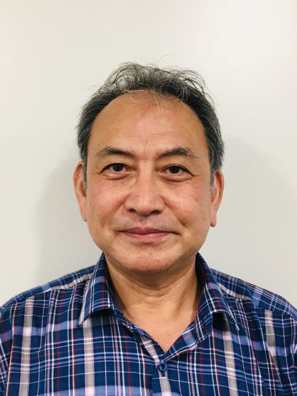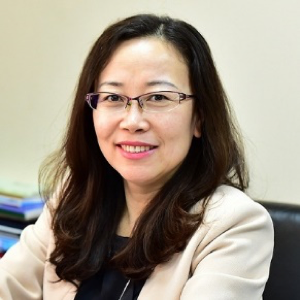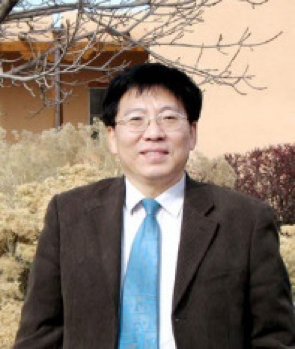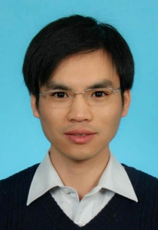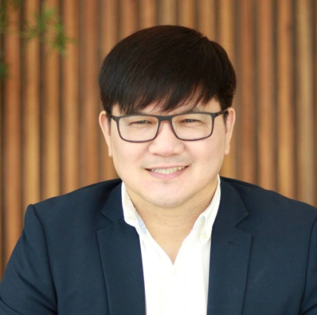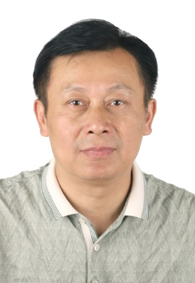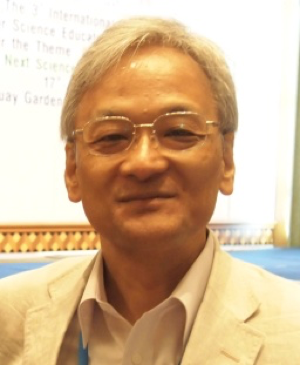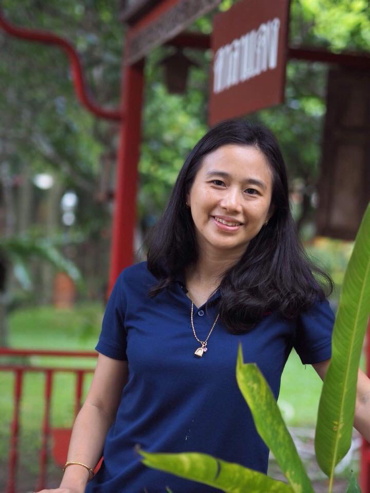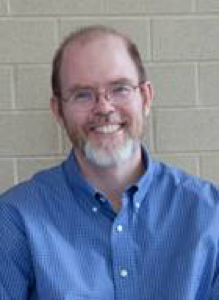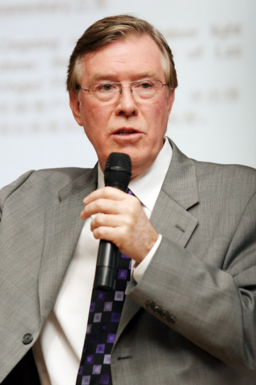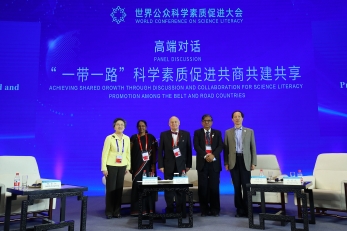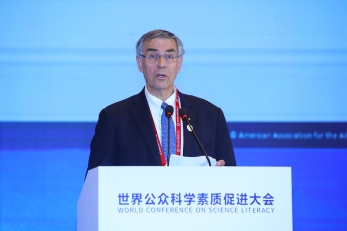Science Literacy Promotion: Scientific literacy in science education and sustainable development
The session of Science Education and Sustainable Development addresses the importance of education for sustainable development. The international community reaches the consensus on the critical roles of education on fostering the future citizens’ sustainable values, behaviors and lifestyles. Sustainable development education contributes on building students’ capabilities on actively participating social issues, including economic, ecological and social equality.
Under the UN SDGs 2030 framework, this forum focuses on the issues of ecology, society and economy in sustainable education. The forum invites the international organization leaders, academic experts and top scientists to discuss the research frontiers, global development trends, political strategies and practices around the above issues of sustainable education. Through this forum, we hope to build consensus and join efforts to shape an international collaboration and exchange platform for promoting sustainable education, and to develop effective organizational and institutional strategies.
The Session of Sustainable Education Development aims to focus on: 1. the connotation of science education for sustainable development; 2. the implementations of sustainable development into education system; 3. the discussions around the core concepts of sustainable education; 4. the communications on international best practices of sustainable education.
Time: 08:30-12:45 October 17
Venue: Beijing Conference Center - Building 8 Conference Hall
Organizer: Beijing Normal University (BNU)
Thematic Session Speakers
Kiichi Oyasu
Director, Education Cooperation Department of Asia-Pacific Cultural Centre for UNESCO (ACCU) in Tokyo, Japan. Prior to assuming his current post in July 2018, he was a Professor of Centre for Global Partnerships and Education, Okayama University in 2016 - 2018. He worked with UNESCO Bangkok in 1996 – 2008 and Dhaka in 2008 – 2016 as a programme specialist for promoting Education for All and Education for Sustainable Development. In particular, he coordinated Community Learning Centre (CLC) networks in Asia and the Pacific through policy forums, capacity development workshops and training materials development. His main research areas are literacy, non-formal education, lifelong learning and sustainable community development. He obtained Ph.D. in Human Science from Osaka University. He is currently undertaking research activities as Specially Appointed Professor of Tokyo Healthcare University and a Vising Research Fellow of Okayama University.
LIU Yuexia
Born in 1967, Ms Liu is a member of the Communist Party of China. She is currently the Deputy Director of the Center for the Development of Basic Education Courses and Textbooks of the Ministry of Education and deputy general-secretary of the Working Committee of Experts on Basic Education Courses and Textbooks. She used to be the Director of the High School Education Department of the Department of Basic Education and the Curriculum Development Department of the Second Department of Basic Education of the Ministry of Education. Mainly engaged in basic education curriculum teaching, examination and evaluation field research and curriculum reform organization and promotion. Participate in the development planning, policy research and implementation of China's general high school education; reform of basic education curriculum in the new century, especially the development, experiment and organization of the new high school curriculum; revision and review of compulsory education curriculum standards and series of work; Participate in organizing the major education reform project of the Ministry of Education in 2011; Participate in the research and implementation of the graduation examination system and the academic level examination system of senior high schools in China, and focus on the academic level examination system of senior high schools and the synthesis of senior high school students. Policy research and formulation on the connection between quality evaluation system and examination and enrollment system in Institutions of higher learning.
John Gordon
Honorary Professor in the School of Geography and Sustainable Development at the University of St Andrews, Scotland. He is a Steering Committee member and a Deputy Chair of the Geoheritage Specialist Group of the IUCN World Commission on Protected Areas, a member of the European Federation of Geologists’ Panel of Experts on Geoheritage and a member of ProGEO, the European Association for the Conservation of the Geological Heritage. He has a PhD in glacial geomorphology from the University of Aberdeen and is a Fellow of the Royal Scottish Geographical Society. He worked for over 30 years with the statutory nature conservation agencies in Great Britain on the assessment and conservation management of geoheritage sites. He has published widely on his research interests which include geoconservation, geotourism and mountain and Quaternary geomorphology.
WANG Min
Professor Wang works in School of Geography and Remote Sensing Sciences in Beijing Normal University. He is a doctoral tutor with rich scientific research experience. He holds important positions in many academic institutions. He has written many academic works such as "Introduction to Sustainable Development Education", "Research Projects and International Dynamics of Sustainable Development Education", and has compiled many textbooks. Origin of Sustainable Development Education, International Comparison and Basic Conceptual Framework of China's Sustainable Development Education (Key Project of Ministry of Education), and China Head of Global Geographic Education Online Center Project (CGGE).
ZHU Zhongjun
Master of Psychiatry and Mental Health, Senior Engineer, Director of Environmental Damage Assessment Center, Chinese Society of Environmental Sciences. He is mainly engaged in environmental pollution damage identification and assessment technology research and case practice, environmental and health-related investigation and evaluation and related areas of decision-making advisory services. In organizing research and promoting work related to environmental and health literacy, in 2013, he organized the compilation and promulgation of "Chinese Citizens' Environmental and Health Literacy (Trial Implementation)" in the form of a bulletin issued by the Ministry of Ecology and Environment (formerly the Ministry of Environmental Protection).In 2014, he organized research on the framework and index system of environmental and health literacy assessment and compiled questionnaires for environmental and health literacy assessment. In 2015, he organized pilot surveys in three provinces (cities) in Beijing, Hubei and Gansu. In 2017, he organized the compilation of Technical Guidelines for Citizens' Environmental and Health Literacy Assessment (trial implementation). In 2018, he organized the completion of 15 questionnaires for environmental and health literacy assessment. Provincial on-site monitoring of environmental and health literacy and compilation of survey reports provide support for the target of residents' environmental and health literacy level proposed in Health China Action (2019-2030).
Uri Ben-Ari
President and Founder, Athena Fund. Since 2007, Uri is a Social Entrepreneur who is the founder and president of Athena Fund, which is dedicated to empowering teachers (85% are women) in Israel by providing them with laptop computers and professional training www.athenafund.org.
To date Athena Fund has provided laptop computers and professional training to over than 23,500 teachers in 157 municipalities in Israel. One of Athena's initiatives is empowering STEM teachers who receive mobile computers, data-loggers with sensors and professional techno-pedagogical training.
Uri Ben-Ari is a seasoned international businessperson with 35 years of experience in senior management and entrepreneurship. Uri specializes in developing and implementing strategic business and marketing plans for companies active in international markets. Over the course of his career, he has undertaken senior management and business/market development activities in the United States, Western Europe, Central and Eastern Europe, Israel, India and the Far East www.linkedin.com/in/uribenari
Uri has developed expertise in the area of “smart cities". Over the last 7 years, he has consulted 8 leading cities in Israel in becoming “smart cities” using methodologies developed by Uri in tandem with models developed by leading universities and research institutes in Europe.
Uri holds an MBA and a BA in Economics from Tel-Aviv University. He is a graduate of the Directors Training of the Executives Program at Tel-Aviv University.
Uri has been lecturing in Israel, in China and in various cities in Europe about the Smart Cities, about the new trends in technology and Technology in Education and published articles in various magazines.
Aurelio P. Vilbar
Associate Professor of the University of the Philippines Cebu, finished PhD in Language Education. With his passion on teaching, volunteerism and teacher training, he received the One University of the Philippines Professional Chair Award in Teaching and Public Service. He is the former Principal of UP High School Cebu and is the current Coordinator of the Office of International Linkages.
He was a Visiting Professor in Otemae University, Japan and has worked with UNESCO projects on language education and sustainable development. He received the American English TESOL Leadership Training of Trainers in Chicago, Illinois, USA in 2018 and the Award for International Participation to TESOL International 2012 in Philadelphia, USA for his research on development of courseware for sustainable development.
WANG Wei
He has been engaged in front-line education, teaching and school management for a long time. He graduated from the Department of Physics, Anhui Normal University in 1986, and got his Bachelor of Science degree in July. In 1986, He was assigned to the first provincial demonstration high school in the key middle schools of Anhui Province, Suzhou No. 2 Middle School as a teacher, successive grade group leaders, deputy director of the school teaching and research office, assistant president of the Party Committee of the school. He is currently working in Suzhou Vocational and Technical College. National backbone teacher. In 2002, he was awarded as a top-level teacher in Anhui Province, and in 2016, the first batch was awarded as a top-level teacher. Advanced workers in Anhui Province and deputies to the Twelfth Provincial People's Congress enjoy subsidies from the provincial government. In 2010, he was enrolled in the second National Advanced Research Class of Excellent Middle School Principals. The chief director of the headmasters' studio of primary and secondary schools in Anhui Province (18 people in the whole province) was selected as the first batch of candidates in the national training expert Bank of headmasters of primary and secondary schools of the Ministry of Education. The Principal Training Center of the Ministry of Education and the Shaanxi Provincial Department of Education held the People's Educator Forum "Wang Wei Seminar on Educational Thoughts" in Xi'an. In 2012, he participated in a three-month research course for outstanding middle school principals in the UK. Published more than 60 papers on education and teaching management and 2 academic works.
OHNO Eizo
Prof./Dr. Eizo OHNO, is professor at Faculty of Education, Hokkaido University, where he has been since 1995. He graduated and received his Ph.D. in physics from Kwansei Gakuin University in 1989. From 1987 to 1995 he worked at the central research laboratory of SHARP Corporation.
His research interests span both to practical and theoretical approaches to science education, especially physics education, in secondary schools. He works on the two projects: "Eye-movement analysis while solving physics problems" and "Emerging evidences and interpretive community of teachers in Lesson Study".
Professor Ohno is the Director of National Association for the Study of Educational Methods (NASEM) since 2012, the Director of the Physics Education Society of Japan (PESJ) from 2013 to 2019. He was also the Director of the Japanese Society for Curriculum Studies (JSCS) during 2008 - 2017. As the member of the planningcommittee of Hokkaido University Press he started his work since 2011. He also the Editor of Physics Education in University (in Japanese) issued by The Physical Society of Japan, from 2005 to 2019.
Chanyah Dahsah
Assistant Professor of Science Education and Director of Science Education Center at the Faculty of Science, Srinakharinwirot University, in Bangkok, Thailand. She received a PhD in Science Education from Kasetsart University, Thailand in collaboration with the University of Waikato, New Zealand in 2007. In 2013 - 2015, she worked as a researcher for the CREATE for STEM Institute at Michigan State University in the US for the NGSS Collaborative Assessment Project, and Interaction Project. Her research interests include K – 12 STEM, science learning and assessment, and professional development for in-service science and STEM teachers. Her current projects aim to train kindergarten teachers how to create STEM learning activities and to train primary and secondary school teachers on STEM2 curriculum development.
Bob Kolvoord
Dr. Bob Kolvoord serves as the founding dean of the College of Integrated Science and Engineering at James Madison University. He is also a Professor of Integrated Science and Technology and Educational Technologies. His academic interests include data visualization and creating transdisciplinary educational programs. He is the co-creator of the Geospatial Semester program, and he’s an award-winning scholar, author and educator who has co-authored 4 books and a wide variety of papers and curricular materials spanning subjects from planetary formation to spatial cognition. Kolvoord holds a Ph.D. (Theoretical and Applied Mechanics) from Cornell University and a B.A. (Physics) and M.S. (Materials Science) from the University of Virginia.
Michael C. Mitchell
Mr. Mitchell has a fifty background in environmental education and development issues. Internationally recognized planner of destination, tourism and sustainable projects, he has contributed to more than 2,000 projects in 59 countries over his fifty-year career.
Mr. Mitchell began his work on environmental issues as a regional coordinator for the First Earth Day in 1970. He subsequently developed educational courses for the U.S. Environmental Protection Agency (EPA). His further educational contributions included serving ten years on the Board of the National Foundation for the Improvement of Education (NFIE), and on two US national education commissions.
Prior to founding MCM Group in 1984, Mr. Mitchell served as Senior Vice-President of the highly successful Los Angeles Olympics, where he was responsible for the planning and support operations of the Olympics. Mr. Mitchell has served as a guest lecturer and provided master classes at over 60 international universities and has written extensively on eco-tourism, agritourism, sustainable development and SMART tourism.
Mr. Mitchell is deeply involved with sustainable development projects in China with twenty year’s experience working on rural revitalization projects through the planning firm he founded, MCM Group International, with offices in Beijing. He currently serves as the Chairman of the International Rural Development Center (IRDC) and Chairman of Freeland - an international environmental organization.
Mr. Mitchell was awarded an Honorary Membership in the Russian Academy of Sciences for his environmental contributions to the Russian nation.
